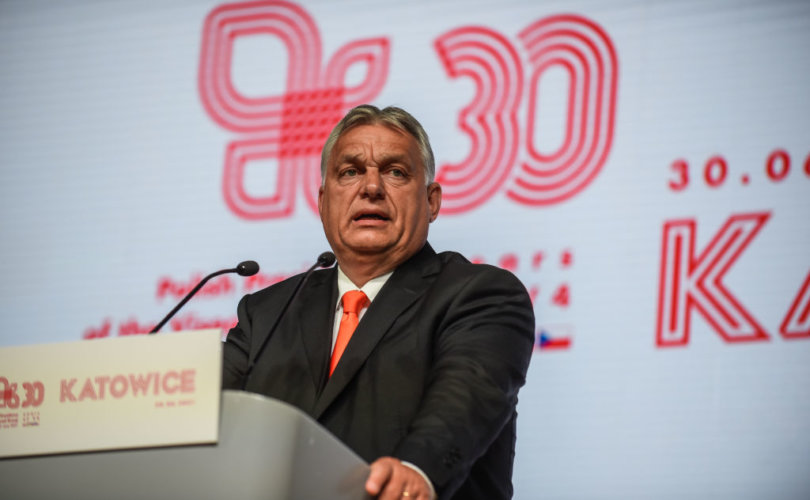(LifeSiteNews) – The Czech Presidency of the Council of the European Union is condemning Hungary for once again resisting the will of the majority at ongoing talks in Montreal being held from December 7 to 19 for the UN Biodiversity Conference (COP15). In a missive sent to ambassadors from all 27 member states, they warned that, as Politico put it, “the bloc’s global leadership on gender issues risked being undermined by the anti-transgender position of ‘one delegation.’”
That “global leadership,” in this context, is accepting transgender ideology as fact and recognizing as such in formal documents. The Czech presidency wanted “inclusive language” in the COP15 talks, referring to “all genders” and “women and girls in all their diversity,” language that was apparently supported by a “clear majority” of the EU member states during a meeting on December 7. In short, they wanted to declare the debate on gender ideology over and reject the male-female binary out of hand.
But Hungary’s diplomats pushed back, rejecting this new language. Hungary, under the leadership of the socially conservative Viktor Orban, is already seen as an enfant terrible at the EU for its pro-family policies and resistance to the spread of LGBT ideology. When Hungary banned LGBT propaganda targeted at kids—a very popular policy—the EU lashed out with a rare joint condemnation, with Dutch prime minister Mark Rutte stating “my goal is to bring Hungary to its knees” and French president Emmanuel Macron stating that the EU should show “no weakness” in confronting Hungary.
READ: Hungary rebukes EU demand to change anti-pedophilia law
Thus, it is no surprise that Hungary has rejected this language and that the European Union is divided heading into further COP15 talks. This, the Czechs alleged, is problematic: “In order to keep our credibility, the EU as one of the strongest advocates of gender equality should not remain silent on this issue in Montreal.” However, despite Hungary being pinpointed as the problem, thirteen other nations also expressed their disagreement with “the attempts to undermine the notion of gender.” Bulgaria’s representative told his colleagues that the “all genders” references violated a ruling on the definition of gender by Bulgaria’s constitutional court.
The Hungarian representative affirmed Hungary’s commitment to gender equality, but noted that they believe gender and sex are synonymous. “While we were very open to find a compromise, unfortunately consensus on certain aspect could not be reached, which we very much regret.” It is this statement that the Czechs believe undermines the European Union’s credibility.
In fact, the attempt to insert gender ideology into formal documents at the outset of a conference on biodiversity is another example of the cynicism and political games the so-called “progressive” countries are willing to play. Gender ideology has not been settled and has certainly not been accepted by many nations in Europe and around the world, and a backlash to many tenets of gender ideology has been growing. In the United Kingdom, France, Finland, and Sweden, to name a few examples, questions are being asked and policies are being changed. Many—if not most—Europeans reject the idea that there are many genders. When Hungary speaks on these issues, she speaks for millions.





